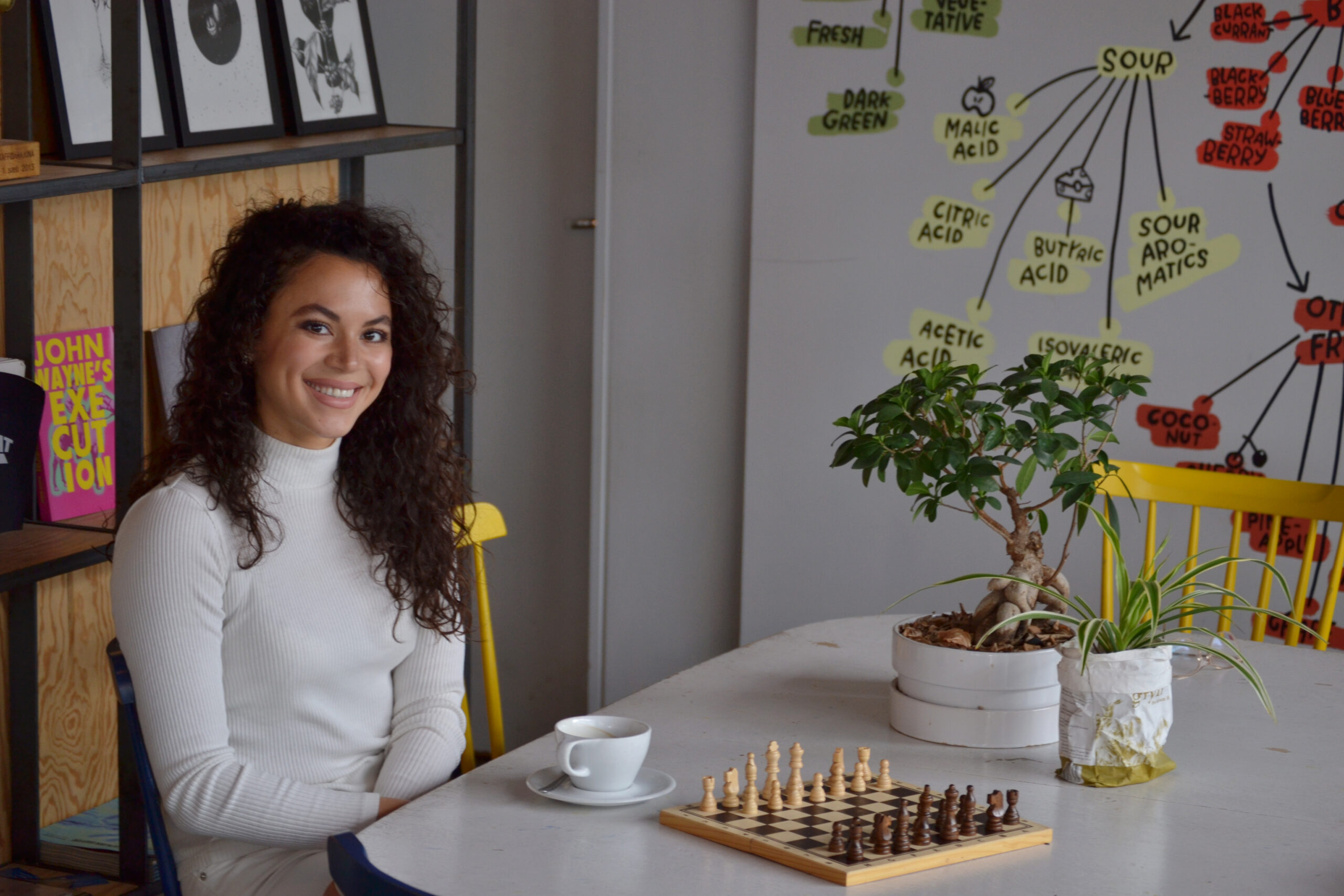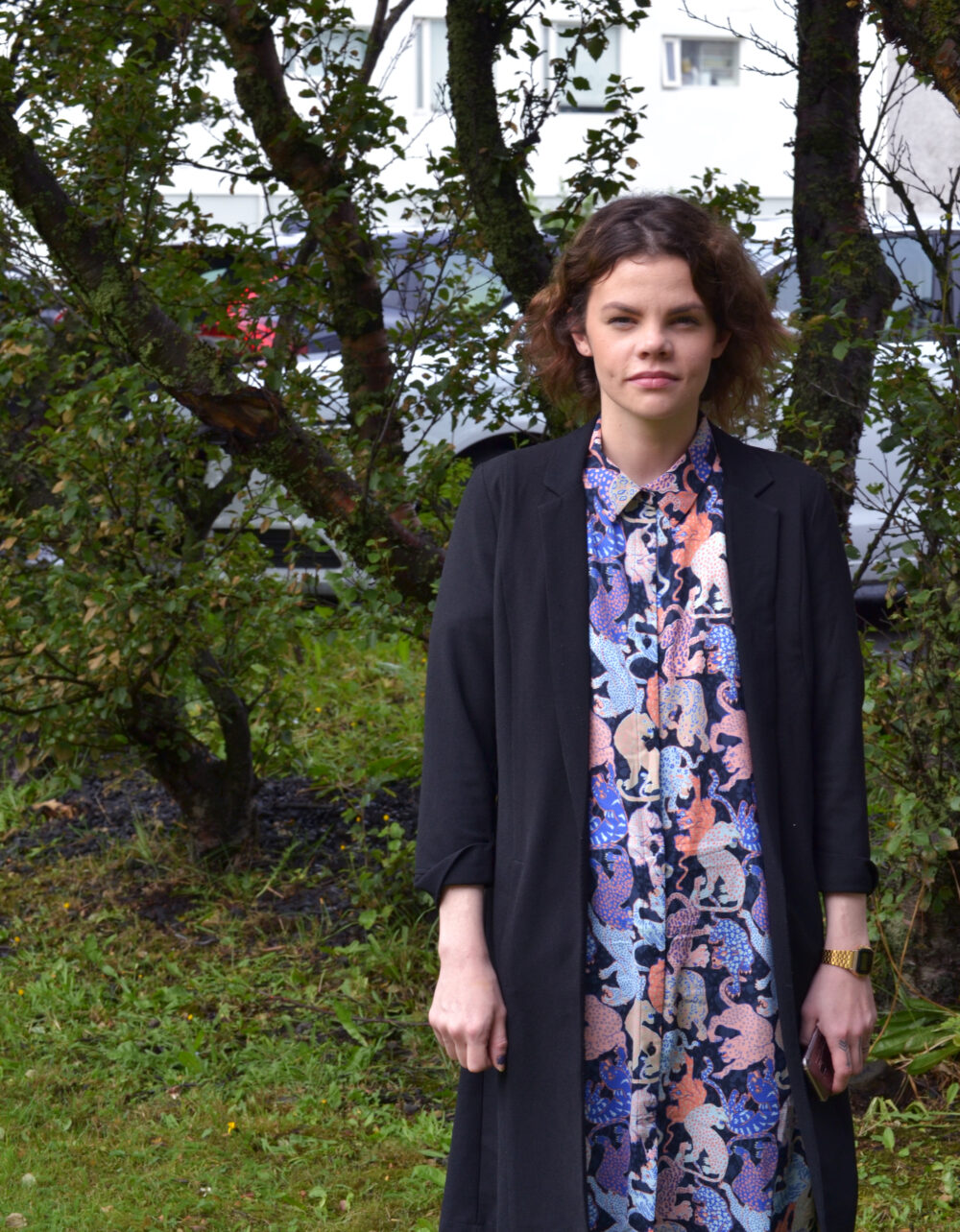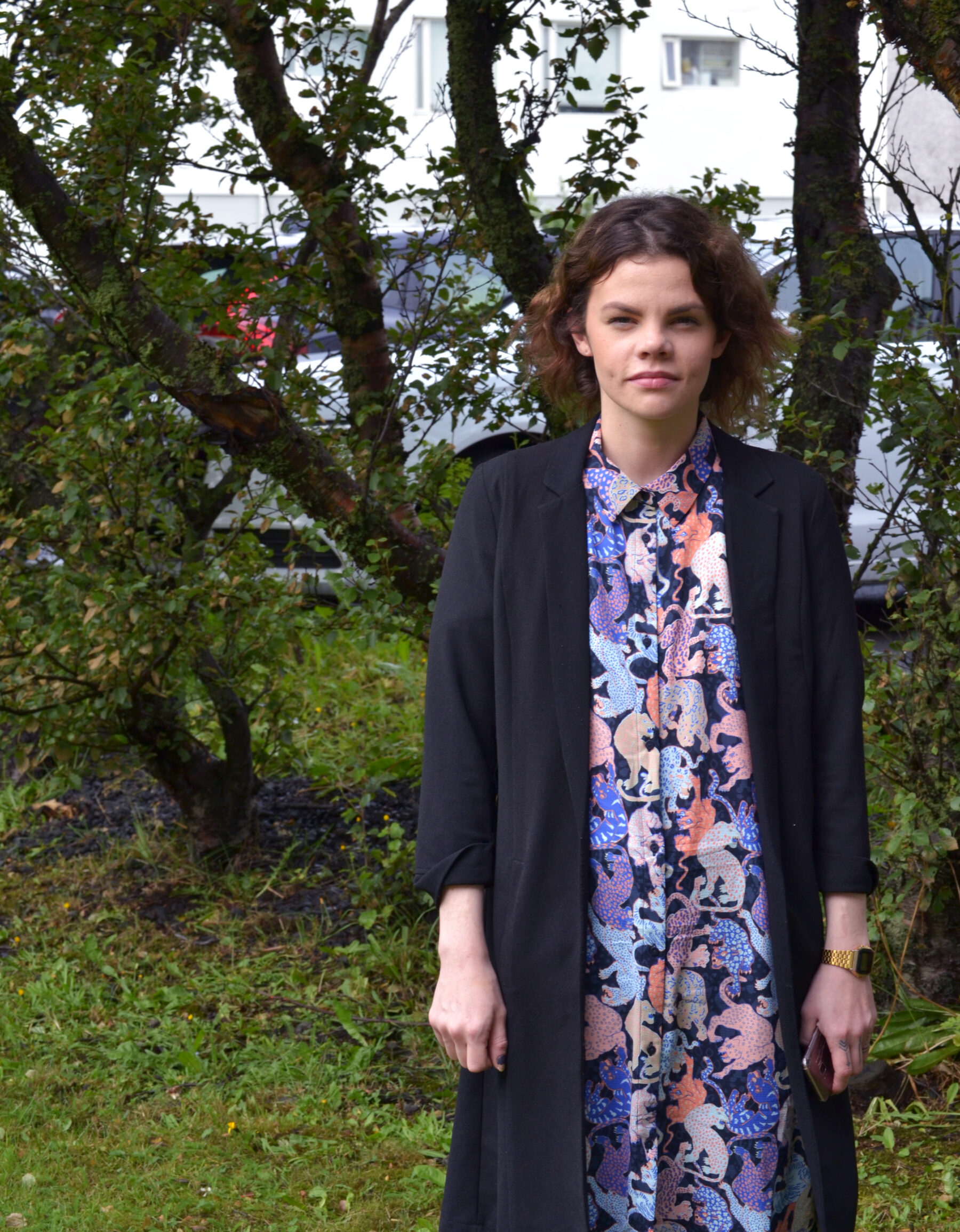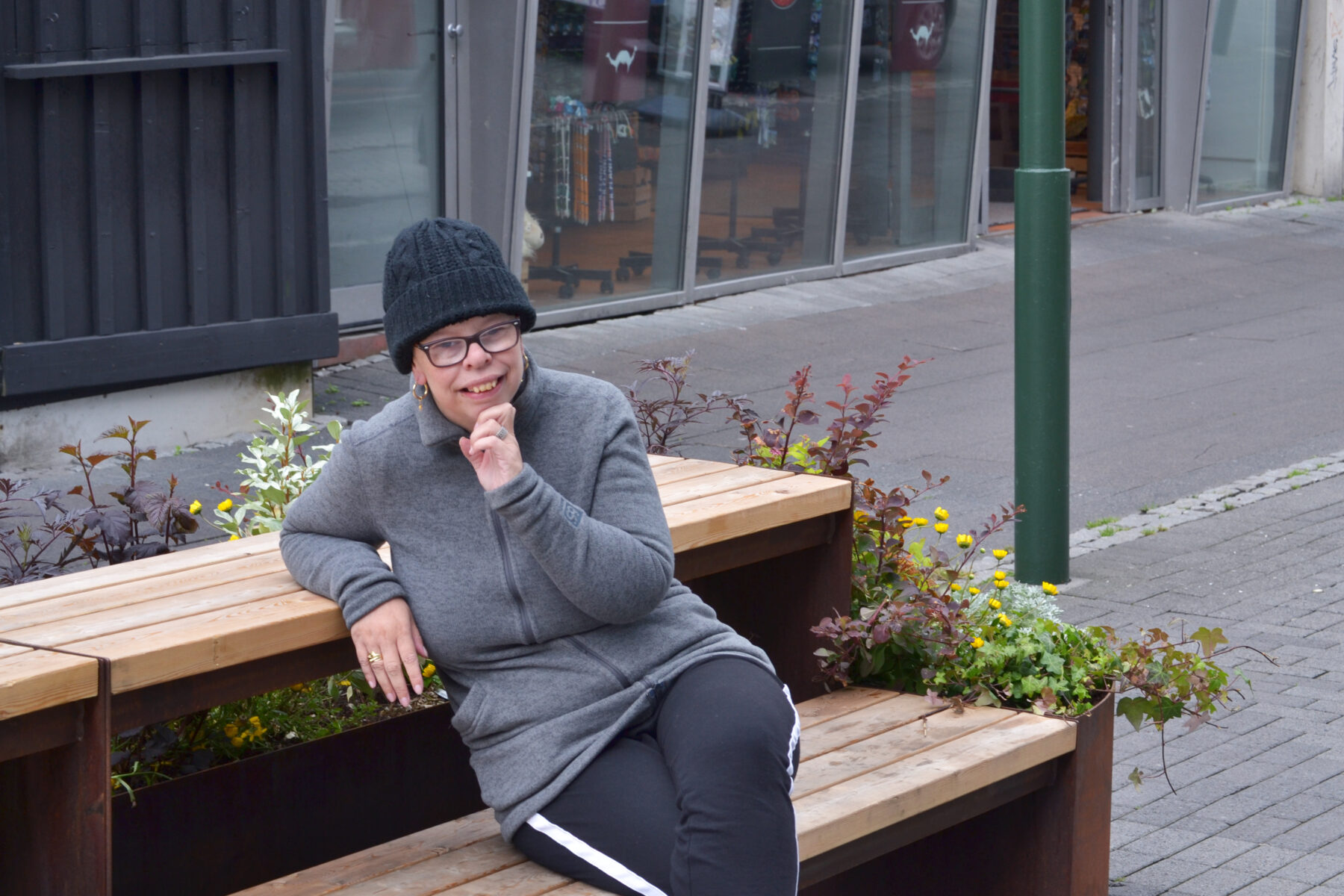


Aldís Amah Hamilton
@aldisamah
images:
Eva Sigurðardóttir
@evasigurdar
@evasig__
evasigurdar.com
translation:
On this day 7 years ago:
“Oh… godamnit … but bacon….”
These are the words I wrote (on Facebook) in 2013, above a picture of a pig and a dog. The picture asks why we find it acceptable to love one animal and slaughter the other. I was taking my first steps towards a new lifestyle that consisted of consuming neither meat nor fish. It was my response to a gnawing guilt that was building up inside me towards other living beings. I was not raised as a vegetarian and I considered horsemeat to be the best meat on the market. I didn’t care much for fish, but I ate it if the accompanying sauce was creamy enough. I declared, not so long ago, that I could NEVER stop eating cheese.
Today I can’t relate to this woman who bemoaned the fact that her conscience was taking bacon away from her. I thought, “This young woman is NOT me!” My palms perspired when I read the post again; I felt a heaviness in my chest. I considered deleting it, the shame was so intense. But I’m going to allow this post to stay on my page. Because it’s important. It reminds me, every year, that opinions can be changed.
Changing views
We have a physical response when something goes against those beliefs and ideas that we consider an integral part of our self-image. Political views are undoubtedly the best example. When arguments are made against these “core” ideas, we experience them as hazardous attacks.
Years ago, when we encountered natural hazards such as tigers and lions, the nervous system sent a message to the brain that it was now necessary to increase our defenses. What the brain doesn’t realize is that we’re not being threatened by tigers or lions (at least not on a daily basis). Just words. Which form ideas. Ideas that can certainly be very dangerous, but what is even more dangerous is burying your head in the sand and refusing to listen.
The Backfire Effect
The Backfire Effect is a concept that was born out of a study done in 2010. According to that study, we tend to hold on to certain ideas so strongly that we may refuse to change our minds no matter what. Anyone who has ever been involved in a discussion about politics over a glass of wine should be familiar with this situation. Even though science confirms it we refuse to accept that we might be wrong. Being challenged may even strengthen the ideas we consider a part of our identity, causing them to become more entrenched. A good example is a study conducted on parents who chose not to vaccinate their children for fear that it could cause autism. The parents were split into two groups. Both groups were asked how likely they were to vaccinate their child, but only one group received data that highlighted that vaccinations do not cause autism in children. The other half received no such data. When it came to the question, it turned out that the group that received the data agreed that vaccination didn’t cause autism.
However, in spite of that, they became increasingly opposed to vaccinating their children! “Knowing better” actually made them stick to their beliefs and ideas about vaccinations even harder. They just found new arguments that “strengthened” their belief. This outcome is called The Backfire Effect and it is more common in such interactions than we realize.

The impact on Iceland
Most of us regularly change our minds. But of course not all opinions are equally important. Big issues like whether it should be “pulsa” or “pylsa” (two different names for hot dogs in Iceland), are not debated in the same way as meat-eating vs. veganism. (And yes, I’m joking about that being a big issue. Everyone knows you say “pylsa” because it’s correct Icelandic. If you say “pulsa” you are probably brainwashed by Danish pronunciation and you need to take a good, hard look at yourself. I googled it. And no, I will not change my mind).
A few years ago, in Iceland, this effect could be seen clearly in the discussion that came in response to the MeToo movement. Women demanded social change to protect them from all kinds of violence. Sounded good! Who could be against that?
It turned out that a lot of people were. Mostly those who experienced some kind of attack on their own identity, and reacted badly to the movement as a result. People who considered themselves “good people” but felt that the campaign went against their definition of what makes a good person. Consequently these good people refused to even consider changing their views and subsequently the overused phrase “Nothing is allowed anymore!” was born. Some people were honestly concerned that the movement would place so many restrictions on communication between the sexes that, in the worst case, Icelanders would become extinct because people couldn’t communicate anymore. If it’s prohibited to grab a woman’s ass, give your co-workers wet kisses, or tell sexual jokes in the workplace, how in the world will we be able to reproduce?
I think now that our attention is on other issues (Black Lives Matter, Covid19, Icelandair’s struggle to survive, etc.), we realize that the idea behind MeToo was actually pretty good. And we can probably find space at the National Museum for those fossils who disagree (and still want “the right” to grab asses and smooch others without permission) in the section “The Icelandic Chauvinist”.
The benefits of standing by our beliefs
Naturally we shouldn’t change our minds on every small occasion. Having an opinion connects us to others who have similar opinions and thus our lives become more bearable. We are social beings and it’s not easy to have a close relationship with someone who is completely opposed to us when it comes to our core beliefs.
Of course it’s necessary to take a clear stand on certain matters, but it’s equally important to review that stand regularly. By listening to arguments and talking to those who disagree with us, without allowing our feelings to take charge, we can form conscious opinions. It’s okay to say: I’m not sure if I agree, but I understand what you’re saying and I need to think/learn more about it.

My opinion
If I had one wish, it would be for as many people as possible to get to know The Backfire Effect. Once you become aware of how the brain functions when it perceives a threatening situation, you can at least try to form opinions based on reasoning, instead of fear. I want to reiterate that I’m not saying that people should not have solid views. But it limits us and our ability to connect with others, learn new things, and improve ourselves as human beings if we refuse to update our view of the world on a regular basis. Sometimes we need to be courageous and admit that we may have been wrong, and as a result, that we have changed our minds.
…And that’s why I don’t miss bacon.
Ps. The “The Oatmeal” web page recently explained this concept in a short, fun and simple way for those who are interested in getting to know The Backfire Effect. The article is illustrated.
Sexual violence: My Right to Exist


My Right to Exist


Dýrin í skóginum


It is Not Enough to Fight for Partial Equality


Read more about...